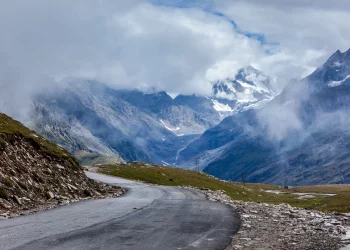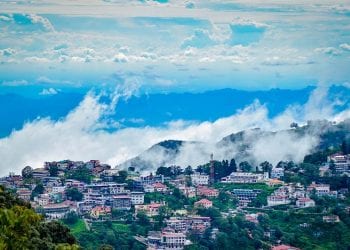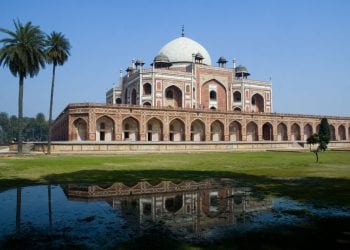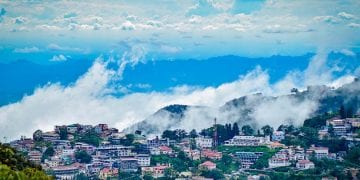Places to Visit in Amravati
Amravati, also called Ambanagri, is a city of immense cultural and religious importance in Maharashtra. It is also called the cultural capital of the Vidarbha region. It is also famous for being the city of Lord Indra and houses various temples dedicated to Lord Krishna and Goddess Ambadevi. Amravati is a place immersed in history and culture. It boasts of colorful traditions, rich culture, and an infectious spiritual fervor. There is no dearth of places to visit in Amravati. The moment you step foot here, the place will overwhelm you with its irresistible charm. Prepare yourself for an exhilarating experience.
Amravati is the second most populated city in the Vidarbha region, just after Nagpur. Besides the temples and other places of religious and spiritual relevance, Amravati is also known for its Varhadi cuisines. The people here are high on life. Every festival here is celebrated with a lot of excitement. Situated amidst the dense greenery of the Vidarbha region, Amravati is fast catching the attention of travelers from all over the country. Amravati is fast developing into an educational and industrial hub and has ceased to be a sleepy Indian village. However, despite the commercialization, Amravati still exudes an irresistible charm that would make you fall in love with it in a heartbeat.
One of the most important places to visit in Amravati is the Ambadevi Temple. This ancient temple is nestled in the heart of the city. According to mythology, Lord Krishna eloped with Princess Rukmini on the day of her wedding through the tunnel connected to this temple. Amravati is a lively city with an equally lively culture. The moment you enter Amravati, you will be greeted with picturesque surroundings juxtaposed with largely urban settings. Amravati, because of its historical and mythological importance, boasts of many places to see.
Places to visit in Amravati:
- Ambadevi Temple
- Melghat Tiger Project
- Gawilgarh Fort
- Narnala Fort
- Chikhaldara Wildlife Sanctuary
1. Ambadevi Temple
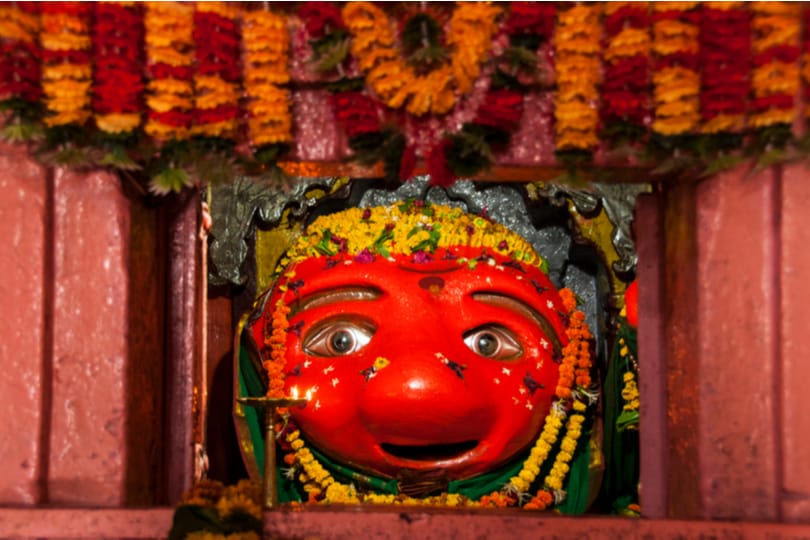
Situated in the center of the city, Ambadevi Temple, is dedicated to Goddess Ambadevi- the Goddess of Shakti. According to legends, Lord Krishna married Rukmini (who in some versions is believed to be the reincarnation of Goddess Lakshmi) when she came to pray here. The Hindus hold this temple in great reverence. Devotees from all over the country visit this temple to offer prayers and seek blessings of the goddess. One of the most prominent festivals celebrated here is the Navratri festival, which is a nine-day festival dedicated to Goddess Shakti. Devotees from all over the state flock to Ambadevi to catch a glimpse of the goddess and pray for a miracle.
An interesting legend is associated with the temple. According to the legend, Bhishmak’s daughter Rukmini fell in love with Lord Krishna, after hearing the tales of his courage. However, Rukmiya, her brother, fixed her marriage with his friend, King Shishupal of Chedi. It is said that Shri Krishna eloped with Rukmini when she came to visit this temple.You can visit the temple during Navratri when the entire temple is beautifully illuminated and decorated. Various cultural programs and performances are organized on those nine days. People from all over the state visit this temple to experience the exhilarating atmosphere here.
2. Melghat Tiger Project
Situated in the northern part of the Amravati District of Maharashtra, Melghat Tiger Reserve came into existence in 1974. The government of India had established nine Tiger reserve in the first phase during the year 1973-74. Melghat Tiger Reserve was one of these nine tiger projects. It was the first Tiger Reserve in the state of Maharashtra. It is spread over an area of 1677 sq km and has dry deciduous forests with 41 species of mammals, 250 species of birds, 24 species of fish and 160 species of reptiles and snakes.
The Melghat has vast tracts of naturally occurring forests, deep valleys, and high hills, and has water all the year-round. This made the area a natural choice to preserve and protect an animal as magnificent and royal as the tiger. This place is a paradise for nature lovers, as we can spot various types of flora including teak, Lendia, Moyan, ain, and many other species. The reserve has 90 species of trees, 66 species of shrubs, 320 species of herbs, 56 species of climbers, 23 sedge species and 99 grass species.
Some fauna species that can be seen in this reserve are tigers, leopards, and wild dog. Five rivers namely Sipna, Khandu, Dolar, Gadga and Khapra flow from this reserve and are the tributaries of River Tapti. The reserve also houses 61 villages inhabited by various tribes including Korku Tribe, Gond, Nihal, Balai, and others.On the south-eastern part of the reserve lie the Gawilgarh Fort on the Chikhaldara plateau, and Narnala fort. If you are a history buff, you can pay a visit to these forts.
3. Gawilgarh Fort
Situated towards the south-eastern part of the Melghat Tiger Reserve, the Gawilgarh Fort was a well-fortified mountain stronghold under the control of the Marathas. It was later captured by an Anglo Indian Force during the Second Anglo-Maratha War. The fort is named after Gawli- cow-herds- who have been the inhabitants of the modern-day Amravati for centuries. It is quite likely that the fort was initially made of mud like many other structures in that area. And later, it must have taken this formidable shape.
The fort has several inscriptions in Persian, recording the date of construction of each of its seven gates. Within the fort, you can see the ruins of a mosque. It is nestled at the highest point of the inner fort and exhibits a typical Pathan style of architecture. There is a stone canopy covering the mosque that is embellished with complicated stone latticework and has a seven arched façade. Originally, the mosque had two minarets. Only one of them is intact today. The fort lies surrounded by rolling hills and a lot of greenery. It is a short trek from the Tiger Reserve. And if you are looking for some solitude, then this is the right place for you.
4. Narnala Fort
Named after the Rajput ruler Narnala Singh, Narnala Fort is a hill fortress in the Akola district of Vidarbha region. It is a three-hour drive from Amravati. The fort was first established in the tenth century AD by Gond kings. It has an altitude of 3000 feet. The Mughals occupied and rebuilt the fort in the 15th century. The lake within the center of the complex is believed to have healing properties.
Narnala Fort is also called the Shahnoor fort. When the Mughals captured it, they built the fort according to Mughal architecture, and also placed a mosque inside it. The fort covers an area of 1.46 sq km and has 360 watchtowers, six large gates, and twenty smaller ones. The large gates are named the Delhi Darwaza, the Sirpur Darwaza, the Akot Darwaza, and the Shahanur Darwaza.
The fort complex houses many buildings and temples. Some of the prominent ones are:

- Mahakali Temple: The temple adorned the building of the fort, and there was a door named after it called the Mahakali door. The door lies in ruins. It is said that the temple had many idols of deities that were stolen later.
- Rani Mahal: It is situated in front of the house
- Peshwa Mahal: It is called the Peshva Mahal because the Peshvas came here and stayed. The structure lies in ruins now.
- Jama Masjid: The Jama Masjid situated here also lies in ruins. It is believed that it carried an inscription in Arabic recording its construction in 1509 by Mahabat Khan but it is not there anymore.
- There is a small mosque, which is believed to have been constructed by Aurangzeb.
- There is an arsenal of old guns called Nau-Gazi tope, meaning 9-yard gun, referring to the length of the gun, and not its range.
- A palace was constructed for the Maratha King Raghuji Bhosle. It now lies in ruins here.
5. Chikhaldara Wildlife Sanctuary
Situated in the Amravati district, the Chikhaldara Wildlife Sanctuary is perched at a height of around 1118m above the sea level. It is blessed with natural beauty and scenic surroundings. The place lies dotted with natural waterfalls and lakes, giving it an irresistible enchanting touch. It lies near the Melghat Tiger Project in the Dhakna-Kolkaz National Park. This wildlife sanctuary is also known as Wan Wildlife sanctuary and houses tropical dry deciduous forests with rich biodiversity of flora and fauna. Some of the animals that can be spotted here include wild boar, panther, sloth, and Sambar. The plant species adorning this place include Tiwas and Dhoada among others.
This sanctuary is home to the beautiful Chilka Lake that attracts tourists from all over the country. Indian Forest Authority manages this sanctuary. It is well connected by road, and you can take buses or taxis to this place from the city.
Best Time to Visit Amravati

The months from October to February are ideal to visit Amravati. Amravati experiences pleasant winters, and sunny skies, thereby making it comfortable for travelers to explore the city. The average minimum temperature during these months is 23 degrees Celsius, which is quite comfortable and pleasant. If you visit Amravati in October, you will also be able to participate in the delightful Navratri festival that is held at the Ambadevi Temple. It is best to avoid visiting Amravati during monsoons because Maharashtra experiences heavy rainfall and your movement would get restricted severely. The wildlife sanctuaries also remain closed during monsoons. Summers here are scorching hot, and the temperatures often reach the 47-degree mark. Hence, winters are the best time to visit Amravati.
Amravati combines the best of culture, religion, and history. It is one of the best places to visit with friends and family if you wish to have an exceptional travel experience. Its vibrant culture, rich history replete with myths and folklore, and stunning natural surroundings will steal your heart in a moment!
P.s. You might like these related resources:
- Best Historical Places in Maharashtra
- Adventurous & Highest Peaks of Western Ghats
- Best Places to visit in Aurangabad
Recent Posts
Top Picks
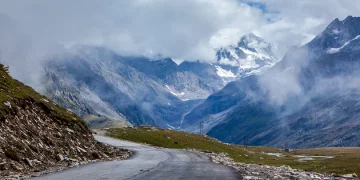
- OYO
 15 April, 2024
15 April, 2024 - Cultural Tour

- OYO
 15 April, 2024
15 April, 2024 - Cultural Tour

- OYO
 15 April, 2024
15 April, 2024 - Cultural Tour

- OYO
 15 April, 2024
15 April, 2024 - Cultural Tour

- OYO
 15 April, 2024
15 April, 2024 - Cultural Tour

Please rotate your device
Please go back to portrait mode for the best experience



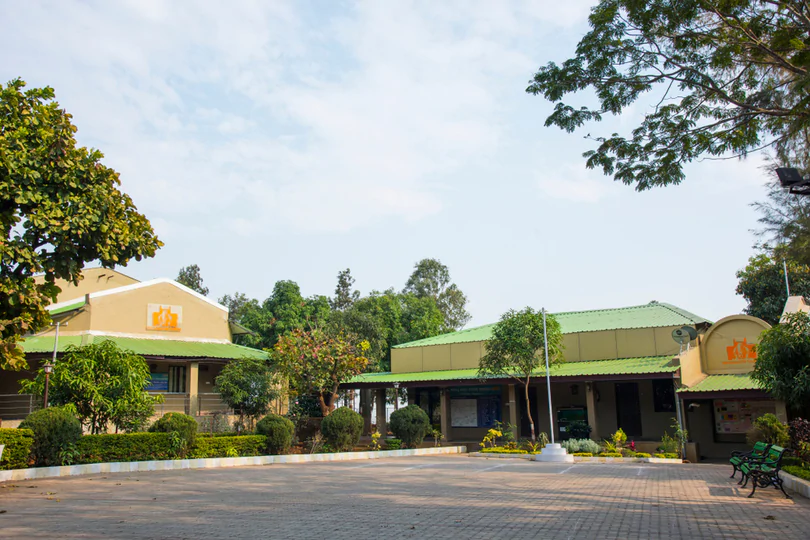

 April 15, 2024
April 15, 2024 